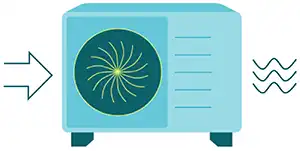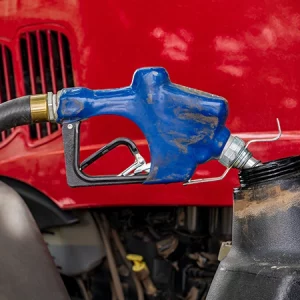Favoured by more than 1 million UK households, heating oil provides a safe alternative to national gas grid fuels. Home heating oil is a popular choice for those living in remote or ‘off-grid’ areas but is no less reliable than traditional fossil fuel alternatives.
If you’re considering switching energy sources, you may have heard some widespread myths about fuel oil. These myths have little evidence and, in many cases, the opposite is true. From environmental misunderstandings to their effects on boilers, here are the biggest heating oil myths.
Myth 1: Home Heating Oil is Unsafe
A common misconception is that heating oil is unsafe because it’s flammable. This is technically untrue – home heating oil systems use kerosene, which is combustible, not flammable. This means heating oil has a ‘flash point’, whereby it needs to be a certain temperature to ignite – between 37°C (99 °F) and 65 °C (149 °F).
Kerosene is perfectly safe to be stored at room temperature in a plastic or steel tank, even in warm summers. By comparison, petrol has a flash point of -43°C (-45 °F), making it far easier to ignite. Equally, kerosene is stored in oil tanks outside of the home. This means there is no risk of natural gas or carbon monoxide poisoning, unlike with traditional fuels.
All our heating oil tanks are made from durable plastic or steel, making them weatherproof and very unlikely to leak. Of course, they need to be maintained regularly, including fuel filters changed every six months, and fuel gauges inspected. If your heating oil tank has a capacity of more than 2,500 litres, it will also need secondary containment known as ‘bunding’.
Our experts are on hand to inspect your oil tanks and can advise if it’s time for an upgrade. Find out more about how to replace your heating oil tank safely.
Myth 2: Kerosene Heating fuels are expensive
Homeowners are understandably concerned about rising energy costs. Today’s heating oil prices are dictated by a fluctuating oil market, but these are far easier to interpret than gas or electric. Oil supplies are priced at pence per litre – and costs today are actually lower than they were in 1980.
Of course, this is subject to change, so there are other cost-saving measures. For example, filling your oil tank in summer is cheaper than doing so in colder months. It can also help to lower oil boiler maintenance costs thanks to reduced deposit build-up.
Myth 3: Oil Heating Systems Damage the Environment
While all non-renewable fuels contribute to greenhouse gas emissions, some are more environmentally friendly than others. For example, ULSHO (ultra-low sulphur heating oil) is significantly lower in impurities, which helps boilers become more efficient and burn less fuel.
Our premium kerosene burns more cleanly and contains additives to help it last longer. This means you can store it for longer to reduce waste, while it can also improve your boiler’s shelf life.
Myth 4: Heating Oil is Running Out
Technically speaking, any fossil fuel has the potential to ‘run out’ as it is not renewable. However, this is unlikely to happen soon due to the variety of sources from which it’s extracted. Another heating oil myth is that it only comes from the Middle East.
This is simply not true. Certas Energy is part of the Gulf Group, We source fuel and lubricant blends from major UK refiners, as well as locations in North America, Venezuela, Argentina, India, China and more.
Myth 5: It’s an Unreliable Home Energy Source
With the off-grid nature of heating oil delivery, many may consider it an unreliable energy source. Just like gas-powered boilers, oil-powered boilers are reliable and may last longer if they run on premium fuel.
The risks of running out of energy are the same as any other concern in an off-grid home. Conditions out of our control such as extreme weather may cause delays in delivery. They may lead to supply chain or transport issues, so it’s always best to be prepared.
To stay prepared for extreme weather conditions, we always advise ordering heating oil ahead of winter – just as you would stock up with food if there’s a chance of being snowed in. Another way to stay one step ahead is by purchasing a heating oil tank monitor. This features a mobile app which will notify you when it’s time to top up.
The Certas Energy Cold Weather Priority Scheme
If eligible, you can sign up for our Cold Weather Priority scheme to get your heating oil delivered first. This is ideal for customers aged over 75, or vulnerable people in remote locations.
Need More Help with Heating Oil Facts?
Kerosene home heating oil provides a cheaper alternative to propane and burns efficiently to heat your home throughout winter. Whether you live in an off-grid property or need alternatives, we’re here to help.
Our certified engineers can advise on how to install oil tanks safely and secure the best value for money with your heating oil. Get in touch with the Certas Home Energy team today to find out more about our premium heating fuels.







